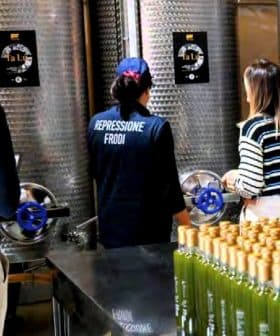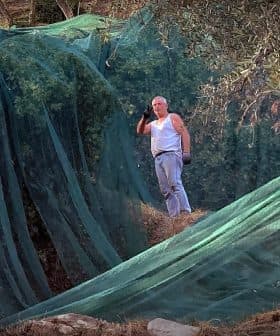Olive Oil in France Rife with Deception and Fraud, Report Finds
The olive oil industry in France continues to struggle with deception and fraud despite stricter controls, as revealed in a recent report by France’s Directorate-General for Competition, Consumer Affairs and Fraud Control (DGCCRF). The report highlighted various deceptive trade practices, including misrepresentation of quality, labeling, and origin of olive oils sold in France, urging consumers to be more cautious when purchasing olive oil.
Despite stricter European controls, the olive oil industry in France is still rife with deception and fraud.
In their report released this week, France’s Directorate-General for Competition, Consumer Affairs and Fraud Control (DGCCRF) unfolded various deceptive trade practices, while warning consumers to be more vigilant when buying olive oil.
After visiting 348 establishments last year, investigators identified several areas of concern in regard to the quality, labeling and misrepresentation of olive oils sold in France.
France imports more olive oil than it produces but fraud was prevalent in both imported and domestic products.
The report showed that in many cases there was no indication of provenance on the labels; the compulsory country of origin was not indicated on 8 percent of olive oils analyzed.
The agency found labels that were not in French, incomplete or outright false. Many labels lead consumers astray, allowing them to believe that the oil was produced in France when it was not, or indicated a Protected Designation of Origin (PDO) or Appellation d’Origine Contrôlée (AOC) indiscriminately.
Only eight regions in France enjoy Appellation d’Origine Protégée (AOP) status which guarantees the geographical origin and recognized production conditions. Investigator found labels falsely indicating AOC and AOP status when the oils had not, in fact, been granted the distinction.
Other impermissible claims made on packaging included statements such as: rich in omega 3, no cholesterol and rich in antioxidants.
There were also concerns about best-by dates on products when producers were unable to provide (Date Limite d’Utilisation Optimale, or DLUO) suitable records to justify the dates on the labels.
Out of 143 samples chemically tested by the Common Service Laboratories (SCL) in Marseille:
- 30 percent did not conform to EU standards
- 22 percent needed to be surveyed because of flaws or inconsistencies in the product descriptions
- 43 percent failed taste tests for the grade indicated
DDCRF found containers labeled ‘dried tomatoes in olive oil’ but on examination were found to contain sunflower oil.
DDCRF advised consumers of olive oil to be vigilant, to be skeptical of less expensive olive oil and to contact them should they find their olive oil “suspicious.”









